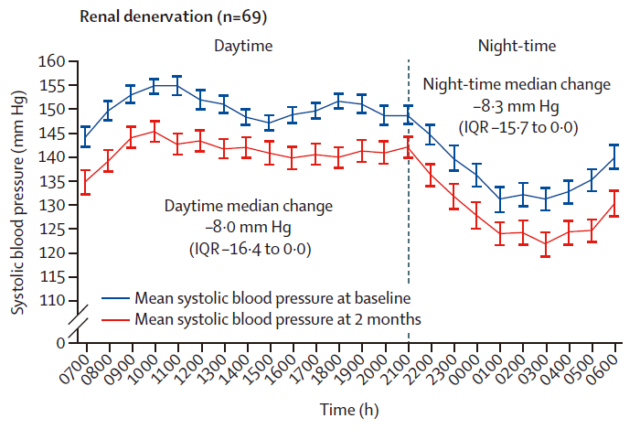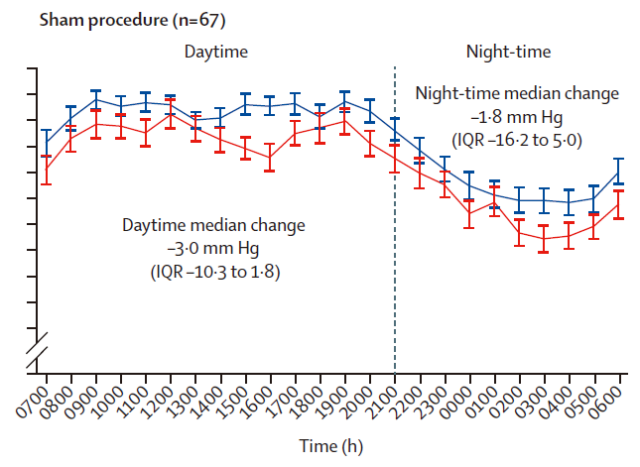Ultrasound has become an artifact for the treatment of hypertension!
- Normal Liver Cells Found to Promote Cancer Metastasis to the Liver
- Nearly 80% Complete Remission: Breakthrough in ADC Anti-Tumor Treatment
- Vaccination Against Common Diseases May Prevent Dementia!
- New Alzheimer’s Disease (AD) Diagnosis and Staging Criteria
- Breakthrough in Alzheimer’s Disease: New Nasal Spray Halts Cognitive Decline by Targeting Toxic Protein
- Can the Tap Water at the Paris Olympics be Drunk Directly?
“The Lancet”: Breakthrough! Ultrasound has become an artifact for the treatment of hypertension!
Lancet: Ultrasound has become an artifact for the treatment of hypertension! Family history, excessive salt intake, obesity, smoking, excessive drinking, and excessive stress are all risk factors for high blood pressure.
Statistics show that the number of hypertensive patients in China has reached 245 million. The prevalence of hypertension in adults over 18 is about 27.9%, but the control rate is very low, only 16.8%. It is worth being vigilant that this disease is also approaching the young and middle-aged groups. However, in contrast, the awareness, treatment, and control rates of hypertension among domestic residents are not ideal.
The cause of 90%-95% of hypertension is unclear. Essential hypertension may be related to genetic factors, environmental factors, diet, mental stress, and too little activity. In addition, 5%-10% of hypertension has a clear cause. Family history, excessive salt intake, obesity, smoking, excessive drinking, and excessive stress are all risk factors for high blood pressure.
On May 16, 2021, researchers from the University of Paris and Columbia University in France published an article entitled “Ultrasound renal denervation for hypertension resistant to a medication triple pill (RADIANCE) in the top international journal “The Lancet”. -HTN TRIO): a randomised, multicentre, single-blind, sham-controlled trial” research paper.
The study showed that in people who did not respond to the triple drug due to high blood pressure, short ultrasound pulses transmitted to the nerves near the kidney caused a clinically significant drop in blood pressure. By interfering with signals from overactive renal nerves, systemic blood pressure can be lowered.
Renal nerve innervation, the idea of treating hypertension by inhibiting renal nerve activity, can be traced back to 50 years ago. Some drugs currently used to treat hypertension actually work by reducing renal nerve activity. Therefore, many researchers have been looking for non-pharmacological methods for this mechanism for a long time.
The study included a total of 989 subjects, and 80% of the patients continued to take the medication as directed. Although compliance was good, one-fifth of the patients did not follow the medication regimen.
Of the 136 patients whose blood pressure remained high after 4 weeks of treatment with the new regimen, 69 received denervation treatment, and 67 of them received sham surgery.
Previous studies on patients with less severe hypertension who did not take any antihypertensive drugs showed that renal innervation surgery is more effective in lowering blood pressure than sham surgery.
Two months after treatment, the patients who underwent false nerve denervation surgery had an average drop of 8 points in daytime dynamic systolic blood pressure, while those who underwent sham surgery only dropped by 3 points. The night blood pressure in the treatment group decreased by an average of 8.3 points, while the sham operation group decreased by an average of 1.8 points.

24-hour dynamic curve of systolic blood pressure at baseline and 2 months in the derenergic group

24-hour dynamic curve of systolic blood pressure at baseline and 2 months in the sham operation group
Researchers say that for patients with drug-resistant hypertension, if they are followed up for a long time, a drop of eight points in blood pressure will almost certainly help reduce the risk of heart attacks, strokes and other adverse cardiac events.
The results show that renal denervation may become an important additional means of drug therapy, including those who have difficulty controlling several drugs to control their hypertension. Further research is needed to determine whether this therapy is feasible for other groups, including elderly hypertensive patients and chronic kidney disease patients.
Currently, the treatment method is still in the experimental stage and has not yet been approved by the FDA. The trial will follow patients for five years to determine whether the drop in blood pressure will be maintained over time.
(source:internet, reference only)
Disclaimer of medicaltrend.org



